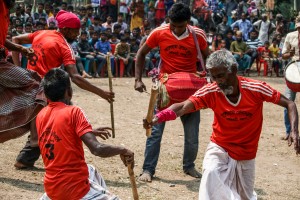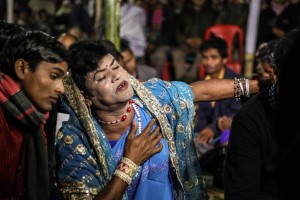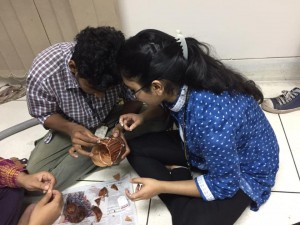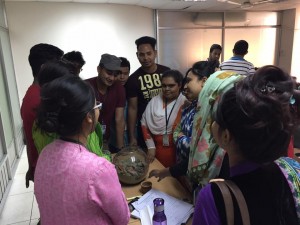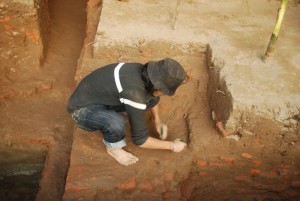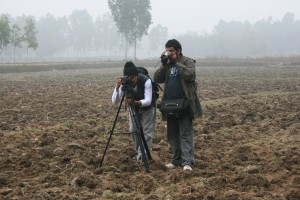The Centre for Archaeological Studies and the General Education Department of ULAB offers exciting courses to its students. They are as follows:
Cultural Heritage of Bangladesh (HUM2104)
Culture of the people in Bangladesh has been evolved from the various utilitarian and intellectual practices of the inhabitants for thousands of years. Through this course we will investigate Bangladesh’s culture in all its spheres, types and traits and tracing their changes and development over time and will also establish the historical link between the past and present culture. Moreover, the course will introduce various methodologies to appreciate cultural heritage based on an innovative integrated perspective deriving both from the human and the natural sciences. Finally this course has a global approach towards planning and management of Cultural Heritage of Bangladesh.
History of World Art and Architecture (HUM2114)
This course will look at the history of world art and architecture from the beginning to the present. Through this course students will learn about the patterns of development in the field of art and architecture; world famous monuments, paintings, sculptures and minor art objects, major artists, architects and also methods of interpretation. In addition to examining visual strategies of representation, the course explores the varied ways in which art reflects and shapes social, religious, and political concerns.
South Asian Art and Architecture (HUM3206)
This course offers a comprehensive idea on South Asian art and architecture from the beginning to the present. Through this course students learn about the patterns of development in the field of art and architecture, painting, sculpture, minor and major artists and architects of South Asia. Besides, they interpret the varied ways in which South Asian art reflects and shapes social, religious, cultural, political economic milieu of South Asia.
Introduction to Archaeology (SSC2150)
This course introduces students to the way archaeologists use material culture to reconstruct past human behavior. This course provides an introduction to theory and methods in archaeological research, data collection, and analysis. The objective is to familiarize you with the strategies that are employed in the investigation of archaeological remains and also gives a clear understanding on the importance of archaeology today and tomorrow.
Introduction to Museology (SSC2153)
The course offers a comprehensive idea on museum studies. Through this course, students earn about the history of museums, planning and policy development, rules of antiquity collection, antiquity law, storage system of museum objects, documentation and inventory, planning of display, principles of displaying objects , conservation and restoration.
Urbanization and Ancient Cities (SSC2160)
This course will trace the development of cities and urban centers of the ancient period. We will examine how political, economic, and social institutions influenced the structure of urban centers and shaped the built environment in cities across the world. In turn, we will analyze how the structure and design of cities influenced the development of civic institutions. The course will be structured chronologically. Each unit will include representative primary-source documents that illustrate important overarching themes. By the end of the course, you will understand how cities have developed over the past six millennia and better appreciate the dynamic relationship between geography, political and social institutions, and the built environment.
Community Archaeology (SSC2241)
Ethnoarchaeology (SSC2244)
Experiencing the Past (SSC2245)
The course is planned to generate in the students a tactile experience of behavior and culture of the past. It will begin with a socio-political overview of a particular period of pre-modern history of Bengal. Thereafter, the students will explore, by means of field survey methods, one archaeological site of the period and record material evidences at the site with the help of various documentation techniques. Finally, they will reconstruct the past in the same landscape with the help of drawings, models, photographs, graphs, charts etc. The course will be offered during the semester break in the winter.
Who Owns the Past? (SSC2260)
This course will examine what role the past plays in the present: Why study the past and why preserve it? How has the materiality of the past been represented in different historical and cultural contexts and for what purposes? How do various indigenous, ethnic, and nationalist narratives of struggle give shape to and reconstruct a ‘true’ history? The course will employ archaeological, textual and ethnographic evidences drawn from a particular time-space bracket in Bangladesh to explore how the past is interpreted and (re)presented to legitimize indigenous, ethnic, and nationalist conflicts and what their broader implications are.
Cultural Resource Management (SSC3142)
Underwater Archaeology (SSC3156)
Archaeological Ethics and Practice (SSC3241)
Archaeological Sciences (NSC2281)
Archaeological Geophysics (NSC3181)
Remote Sensing in Archaeology (NSC3281)

